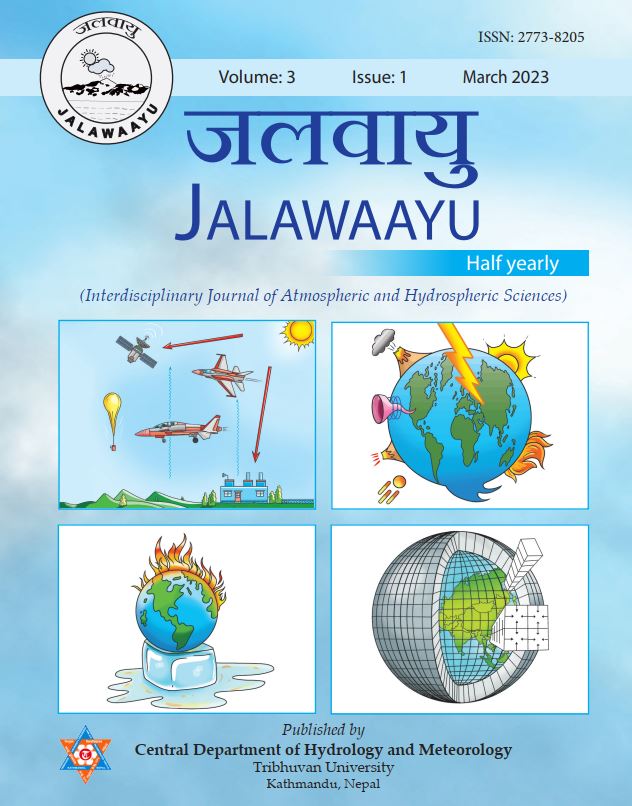Glacier Area, Mass and Associated Glacial Lake Change in Kawari basin, Western Nepal
DOI:
https://doi.org/10.3126/jalawaayu.v3i1.52068Keywords:
Glacier, Mass Balance, Glacial Lake, Remote Sensing, NepalAbstract
Due to ongoing global climate change, the glaciers in the Himalaya are shrinking and the glacial lakes are increasing in number and area. This study investigates the glacier area change, mass balance and associated glacial lake evolution in the headwaters of Kawari basin, western Nepal using optical remote sensing images. The results indicate that eleven glaciers in the study area have shrunk by 1.64 km2 between 1994 and 2021. In the same period, due to glacier recession glacial lake formed and expanded by 0.0103 km2 yr-1 reaching 0.34±0.042 km2 in 2021. Surface elevation change of glaciers revealed that the ablation zone of glacier thinned up to -8.18 m between 2000 and 2019. The specific mass balance of eleven glaciers was calculated to be -0.3 m w. e. yr-1 from 2000 to 2019. The study of glaciers is important as they are visible signals of climate change, and their changes often impact water resources and mountain hydrology.
Downloads
Downloads
Published
How to Cite
Issue
Section
License

This work is licensed under a Creative Commons Attribution 4.0 International License.
Copyright © of the articles is held by the authors.

